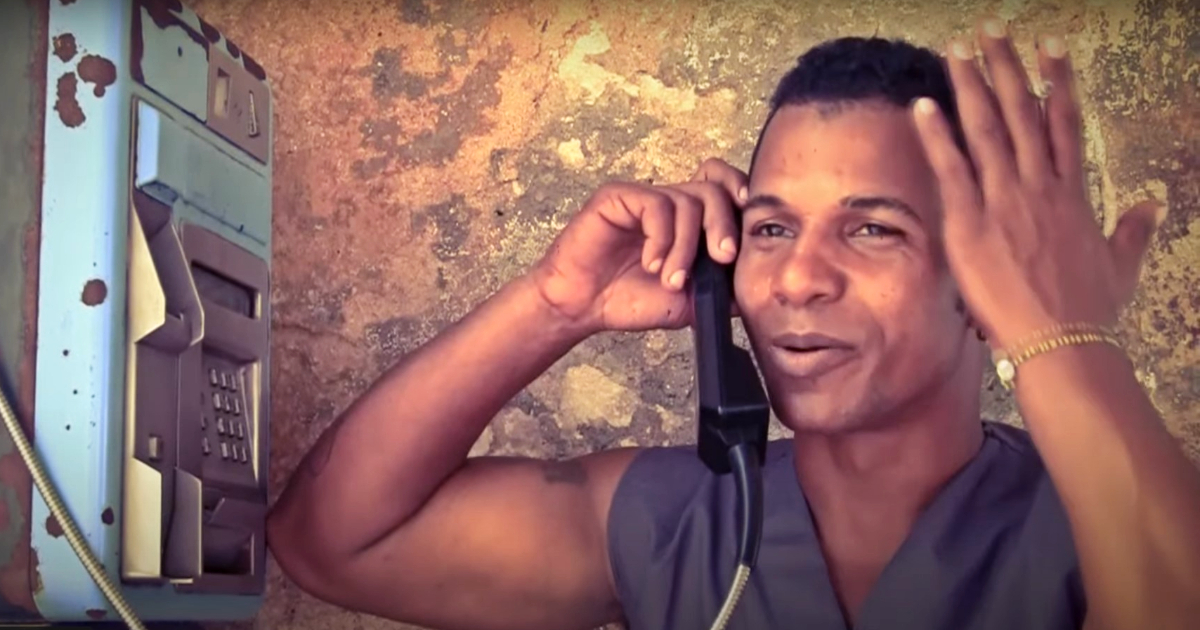
La ONGPrisoners Defenders (PD) put the number ofpolitical prisoners verified in Cuba, a number that includes 11 new prisoners of conscience imprisoned in the month of February.
“1,066 Political Prisoners TODAY in #Cuba. More than 400 judicial processes analyzed in our complaint to @UN_es demonstrate 7 patterns of violation of fundamental rights from arrest to the imposition of sentences,” the organization indicated this Monday on Twitter.
In itsMonthly Report on Political Prisoners, the non-governmental organization noted that as of February 28, the Cuban regime's prisons house more than a thousand political prisoners.
Published inwebsite, the report includes a link to the detailed list of those imprisoned for political reasons in Cuba, which is accessed upon request for consultation authorization.
“All of them are tortured as demonstrated by the detailed study of 101 random cases reported byPrisoners Defenders before the United Nations Committee Against Torture (CAT),” the NGO stated.
According to PD, the public reproaches expressed by the CAT, materialized in its report last May on the situation of torture in Cuba, support the research methodology used by the organization.
Likewise, he stressed that "the report of the Committee on the Rights of the Child, this past June, also confirmed that dozens of girls and boys continue to be sentenced to very harsh penalties for exercising their freedom of demonstration and 'association', accusing them of sedition, among other atrocities." .
Those convicted for political reasons in Cuba are victims of fraudulent processes, says PD. In that sense, he referred to the “content of theComplaint that is being presented to the United Nations Organization, and that demonstrates with all legal rigor the systematic violation of rights in all cases of political imprisonment in Cuba.”
From arrest to imposition of sentences, the authorities of the Cuban regime engage in broad patterns of violation of fundamental rights in all phases of the criminal process. More than 10 jurists have participated in the preparation of the Report, of more than 5,000 pages.
The most common violations found in the more than 400 cases analyzed include: the absence of judicial protection for the precautionary deprivation of liberty, the lack of independent defense lawyers in Cuba, or the absolute organic dependence on the hierarchy and judges of the criminal system. regarding political power.
To these we should add criminal proceedings in which all accusations, without exception, are supported only by “witnesses” dependent on the communist party and which are articulated with the fraudulent use of “expert” evidence permitted only to the Ministry of the Interior.
Furthermore, criminal proceedings are carried out against activists and opponents in Cuba where an endless range of fundamental rights are seriously criminalized and systematically and openly persecuted.
The use of criminal types ofPenal Code that, due to their nature, breadth, severity and regulatory indeterminacy, allow the unlimited criminalization of any conduct that the regime wishes to penalize; or the habitual use of illegal and/or summary military criminal procedures that highly violate rights, make up the legal-repressive context in Cuba.
“In the last 12 months alone we have confirmed and added 282 new political prisoners to our list. This February, 11 new cases of political prisoners have entered our list, mainly due to the persecution of activists who collaborate in solidarity with the families of political prisoners to make their situation visible,” the NGO said.
On the other hand, only 22 political prisoners have come off the list this month, “the vast majority after full compliance with the imposed sanction.”
However, “30 boys and 4 girls are still on the list, a total of 34 minors, who are still serving sentences (30 of them) or are being criminally prosecuted (4 of them). It must be taken into account that this high figure, however, does not include many other children who have already been removed from the list because they have fully completed their sentences.”
“Of our current list, 210 protesters have been charged with sedition and at least 208 have already been sentenced to an average of 10 years in prison each. Although many dozens more have gone to prison, at least 116 women (including several of trans gender) still have political and conscientious convictions and convictions,” PD noted.
Dedicated to human rights reporting, legal action and pro-democratic defense, the organizationPrisoners Defenders He also focused on the “more than 11,000 civilians, young people - the vast majority of whom are black - who do not belong to opposition organizations, with average sentences of 2 years and 10 months, who suffer 'pre-criminal' sentences, that is, without a crime. "any committed or attempted."
In this way, the NGO highlighted the repressive use that the Cuban regime has traditionally made of the figure of“pre-criminal social danger”, which was replaced in the new Penal Code by"post-criminal therapeutic measures" that allow the indefinite confinement of defendants in psychiatric facilities, as acknowledged byCyberCubathe lawyer ofCubalex Alain Espinosa.
What do you think?
COMMENTFiled in: